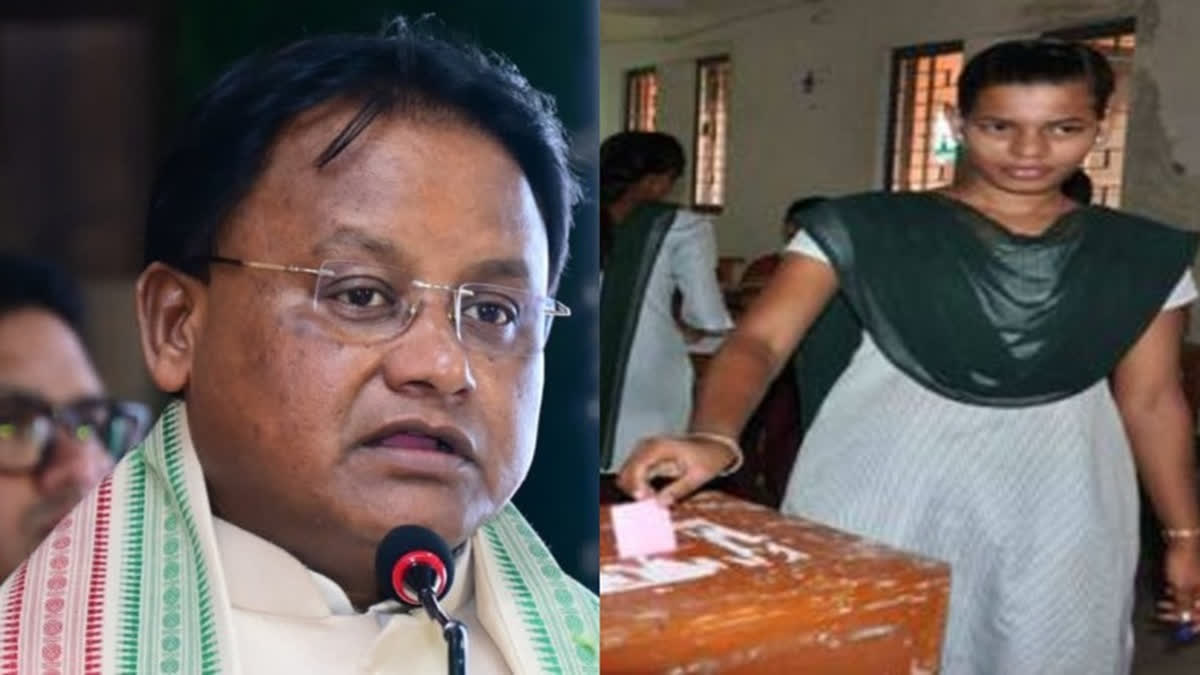Bhubaneswar: For decades now, student union elections in colleges and varsities across states have been a platform to develop leadership skills and understand democracy. However, in Odisha, these elections were halted in 2018 by the then Naveen Patnaik government, citing adverse effect on academic environment due to increasing disruptions and campus violence. In the subsequent years, the Covid pandemic delayed resumption of the polls and no elections were held till 2023. However, the newly-formed BJP government now plans to reinstate student body elections in colleges and universities of Odisha, almost after a seven-year hiatus.
Even though no formal notification has been issued, Chief Minister Mohan Charan Majhi's recent announcement in this regard during a programme in Cuttack, has been welcomed across educational and political circles.
How Relevant Are Student Elections?
Student union election has been a cradle for many who have reached big positions after starting their political journey in college. Prominent leaders like former Chief Ministers Nandini Satapathy, Biju Patnaik, Janaki Ballabh Patnaik; or be it Union Minister Dharmendra Pradhan, MLA Arun Sahoo or MLA Byomkesh Ray, each of them rose from campus elections to make an impact on state and national politics.
What exactly is student council election? When did it start in Odisha? What is its purpose? How does it affect the educational ecosystem? Here's what political experts and students said during interaction with ETV Bharat.
Following frequent protest by students, campus elections were first introduced in 1938, at Cuttack's Ravenshaw College (now University), which happens to the oldest higher educational institution in Odisha.
Research scholar Biplab Shiladitya said, "The state witnessed several protests demanding student union elections. In 1938-39, there was a protest in Ravenshaw College when Pranakrishna Parija was the Principal. In the wake of the protests, Principal Parija valued the opinion of the students, and since most of the opinions were in favour of elections, he gave a nod. And this is how student union elections started in Ravenshaw, the first college in Odisha. Other colleges in the state also followed. The first student elections in the state started in 1938 itself."
What Reforms Did Lyngdoh Committee Bring In 2006?
The Lyngdoh Committee in 2006 set strict guidelines on candidate's eligibility, campaign process, and spending limits, to ensure that election is held in structured manner. Shiladitya said, “In 2006, the Lyngdoh panel rules were implemented to regulate the student body elections. The Commission gave clear instructions on who can participate in the elections, how often and when the elections will be held, the age limit of candidates in the elections, how much money they can spend for polls, etc. However, the previous BJD government stopped elections. This is not right.”
Violence No Ground For Poll Cancellation
According to political expert Omkar Raut, “Student election is part of a culture of the educational institutions. It is very necessary and has a positive impact on the students. It inculcates decision-making process in them, helps them learn how to organise several activities. Most important, it develops leadership skills. Student leaders get the ground experience of politics and learn to draw attention of the authorities about various problems of their college and solve those as well.’’
Violence is reported in almost all colleges and varsities of the state during and after student elections due to political interference, with parties indirectly backing candidates. As a result, many students are arrested by police for causing disturbances, which affects their career at a later stage. However Rout is not in favour of election cancellation due to violence. "Violence is seen during general elections too. Elections are not cancelled then. Why are college elections being cancelled?" he asked.
Voice Of Student-Power Fading
Student elections are held once a year, usually in October before or after Durga Puja. This is because the admission process of new batch completes by September. In 2018, frequent incidents of violence on college and university campuses prompted the then BJD government to suspend elections. Later, in 2020, 2021 and 2022, elections were suspended due to Covid. Even in 2023, the BJD government did not take any decision to resume student elections.
The suspension of student union elections has weakened organisational strength among students, opined Omkar Rout.
"All student issues, which were once being addressed through elected representatives, remain unresolved. Voice of student power is fading,” lamented Rohit Kumar Suna, a student of Madhusudan Law University.



